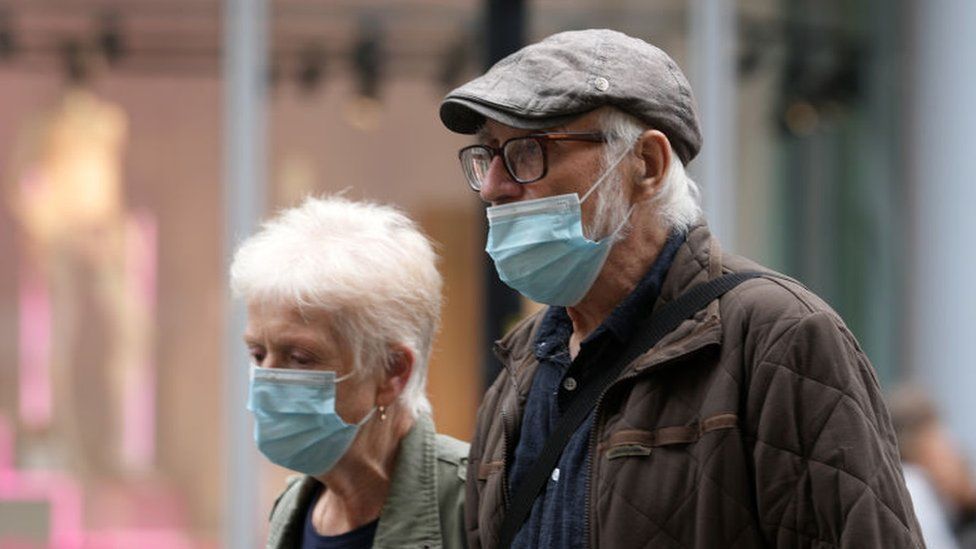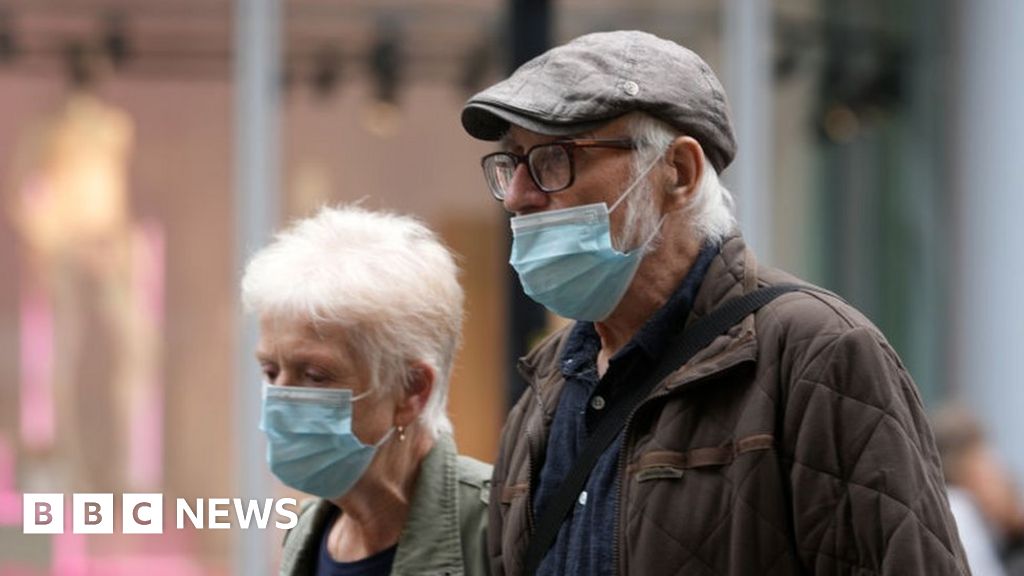
A UK-wide programme of booster jabs to help prevent Covid will be confirmed later, the BBC understands.
Ministers are expected to announce jabs for the over-50s as part of their Covid winter plan, after advice from the independent vaccine panel, the JCVI.
BBC political editor Laura Kuenssberg said the booster would be a single dose of the Pfizer vaccine at least six months after a second dose.
The NHS began preparing for the booster programme in July.
But the government has been waiting for recommendations from the JVCI on who should receive the extra doses before announcing more details.
The BBC understands the booster programme will be similar to the interim proposals published by the vaccine experts in June – which suggested jabs should go to the over 70s and those most at risk first, before expanding to all adults aged over 50.
On Monday, the government confirmed all children aged 12 to 15 in England would be offered one dose of the Pfizer jab, with invitations going out from next week.
It follows advice from the UK’s chief medical officers, who say the jab will help reduce disruption to education.
A rollout is yet to be confirmed in Scotland, Wales and Northern Ireland.

Plan for worst, hope for best

There is a huge amount of uncertainty about what winter will bring. In fact, it’s not even clear what the next month will bring.
It was feared September could see Covid cases rise, but there are no signs of that happening yet.
Big surges in infection levels are probably behind us, given the amount of immunity built up in the population.
But if current levels are sustained throughout winter the NHS will struggle. That will certainly be the case if other respiratory illnesses bounce back like experts fear.
RSV, which can cause 30,000 hospitalisations every winter among the under fives – five times the number admitted for Covid since the start of the pandemic – is already circulating at very high levels.
Flu could also take off. Lockdowns and social distancing last winter means immunity has waned across the board. It’s important to plan for the worst, while hoping for the best.

The news on booster jabs comes as the government prepares to set out its plan for managing Covid through the autumn and winter on Tuesday.
In a statement before the announcement, Prime Minister Boris Johnson said while the pandemic “is far from over”, the “phenomenal vaccine programme, new treatments and testing” mean the UK is “able to live with the virus without significant restrictions on our freedoms”.
And he said he will lay out a strategy for the months ahead “when the virus has a natural advantage, to protect the gains we have made”.
Mr Johnson’s Covid winter plan for England is expected to focus on contingency measures that would be brought in if the NHS was at risk of becoming overwhelmed due to the virus.
At a Downing Street briefing on Monday, Prof Chris Whitty, England’s chief medical officer, said “anybody who believes that the big risk of Covid is all in the past… has not understood where we’re going to head as we go into autumn and winter”.
He said there would continue to be “pressure on the NHS” and “disruption to education”.
Also speaking on Monday, the PM confirmed the booster programme would be “going ahead” and had “already been approved”, but without further detail.
Mr Johnson was also pushed on whether future lockdowns were being considered, but he told reporters: “I will be setting out a lot more tomorrow, I’ll be giving a full update on the plans in the autumn and winter.”
The Times reported the government’s Scientific Advisory Group for Emergencies (Sage) had devised a series of options to limit the spread of Covid without the use of lockdowns, including bringing back mandatory face coverings and working from home if there was a winter surge in infections.
The JCVI said earlier this month a third vaccine dose should be offered to people over the age of 12 with severely weakened immune systems – which accounts for up to half a million people in the UK.
It came after research showing about 40% of people with weakened immune systems had a low antibody response, and potentially less protection, after two vaccine doses.
But there are concerns that, coupled with a bigger flu season than normally expected, extra protection could be needed for more people over the winter months.
Over 48 million people in the UK have had their first dose of a vaccine, with more than 44 million having their second dose.

- A VOYAGE TO THE EDGE OF REASON: New epic drama streaming on BBC iPlayer
- THE CARDIFF FIVE: One of Britain’s most notorious miscarriages of justice

